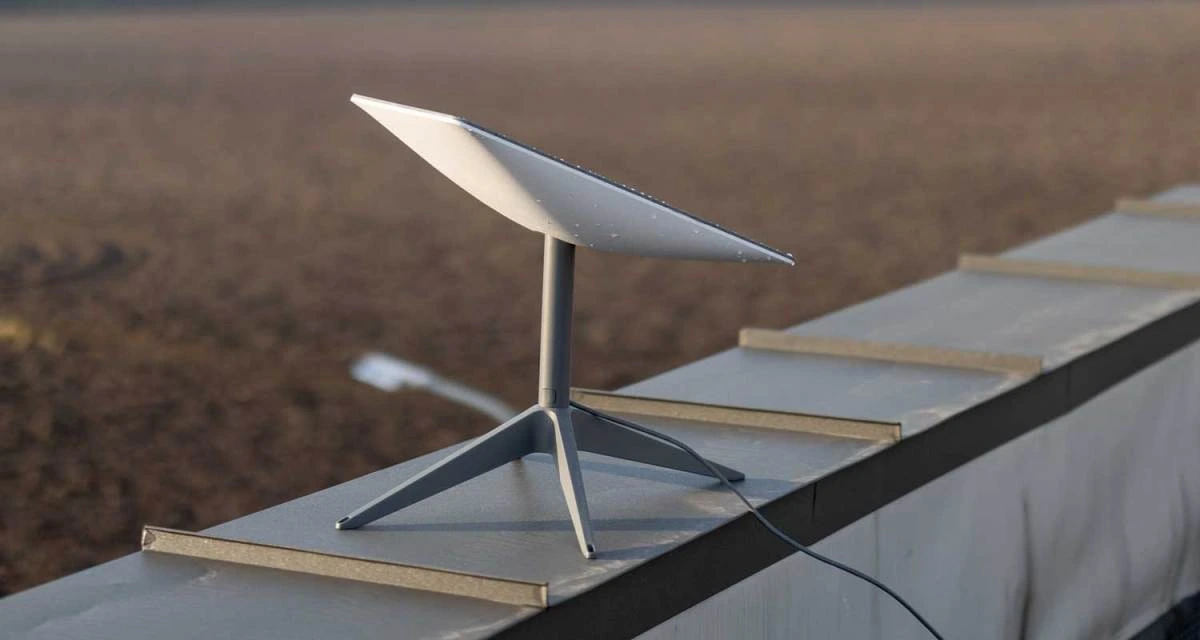Business
Elon Musk’s Starlink Propels To Top Internet Providers In Kenya
The overall satellite internet subscriptions in the country grew monumentally during the year from 405 as of June last year to 8,324 at the end of the review period.

Tesla billionaire Elon Musk’s satellite internet firm Starlink has captured a 0.5 percent share of Kenya’s internet market in its first full year of operation in the country, amassing a subscriber base that totalled 8,063 users at the end of June this year, new data shows.
Fresh statistics from the Communications Authority of Kenya (CA) indicate that the growth rate has propelled the multinational into the top ten list of dominant internet service providers (ISPs) in the country, enjoying an equal pie of the market with Vijiji Connect Limited, which launched operations in 2020.
Safaricom maintained its firm grip on the market growing marginally to control a market share of 36.4 percent, up from 36.2 percent in June last year, followed by Jamii Telecommunications Limited (JTL), whose share grew to 24 percent from 23.7 percent last year.
Wananchi Group Limited (Zuku), on the other hand, saw its market control shrink during the period to 17.5 percent from 21.6 percent last year.
“Safaricom Plc reported the largest market share of 36.4 percent followed by Jamii Telecommunications Ltd and Wananchi Group at 24.0 and 17.5 percent respectively. Starlink Internet Services Kenya, which was licensed earlier in the financial year to provide satellite internet services, had a market share of 0.5 percent as of June 30, 2024,” wrote CA in its latest sector statistics report.
Starlink, which is an outgrowth of Musk’s space technology firm SpaceX, operationalized services within the local market in late July last year, setting the stage for what analysts termed ‘a consequential industry disruption’ that would see the battle for the fast-expanding market intensify among the top ISPs.
Satellite internet users
Between April and June this year, CA notes, Kenya’s utilised satellite internet capacity – which reflects the total internet access speed that the technology can provide per second – increased rapidly to 840.448 gigabits per second (Gbps) up from 48.438 Gbps in the previous quarter, a more than 16-fold jump, courtesy of Starlink services uptake in the country.
“Satellite subscriptions maintained an upward trend following the launch of Starlink services during the year, with 96.9 percent of satellite customers subscribed to speeds between 100 Mbps and 1 Gbps,” notes the industry regulator.
The overall satellite internet subscriptions in the country grew monumentally during the year from 405 as of June last year to 8,324 at the end of the review period.
“This growth is attributed to the licensing and subsequent launch of Starlink Internet Services Kenya earlier in the financial year,” said CA.
“This trend is expected to continue in the coming periods considering that this technology provides high-speed, low-latency broadband connectivity, especially in areas where internet is currently unavailable or unreliable.”
The disclosures by the regulator point to a growing appetite among users for more personalised attention and quality services, with market disruption already taking shape as traditional players start exhibiting distress signs.
In August this year, market leader Safaricom wrote a letter of protest letter to the CA asking it to review the policy of licensing independent ISPs in what was widely seen as an attempt to censor Starlink.
In its petition, the telco argued that indiscriminate permit approvals to such firms could give rise to illegal connections and harmful interference to mobile networks.
In what was seen as a veiled response by the government, President William Ruto, while on a visit to the US last month, backed Starlink’s operations in the country, saying that the firm’s conduct was in line with the State’s policy of deepening internet penetration and encouraging competition in the market.
Price wars
In an attempt to dodge a price war with the multinational, Safaricom last month increased its home fibre internet speeds by up to five times as part of efforts to protect revenues and guard its customer base.
A major strength for Starlink against its competitors is its ability to deliver high-speed, low-latency internet to remote and previously underserved areas, making it an ideal product for Kenya’s rural settings where traditional Internet services are limited or unreliable.
Since entering Kenya, Starlink has seen its operations model undergo a raft of amends as part of its strategy to net a wider base of subscribers.
At the onset, the service had proved to be a deterrent due to its prohibitive cost, after it emerged that one needed at least Sh100,000 for installation, the bulk of which was the purchase price of the hardware kit at Sh89,000.
The cost of the kit has since been reduced to Sh45,500.
In June this year, the multinational introduced a 50 gigabyte (GB) monthly data package at a rate of Sh1,300, which is less than half the price of Airtel, which charges Sh3,000 for a similar package.
Safaricom, on the other hand, sells a 47GB data package that includes 2,500 talk minutes and 5,000 SMS for Sh5,000.
Last month, Starlink introduced a rental plan for the installation hardware kit, with users paying a monthly rate of Sh1,950 as opposed to a one-off purchase at Sh45,500, in addition to the Sh1,300 charge for the 50GB data plan or the Sh6,500 monthly service fee for an unlimited internet package.
The firm has also lined up plans to launch new satellites with the ability to connect and deliver internet directly to subscribers’ mobile devices without the need for a hardware kit from next year.
Kenya Insights allows guest blogging, if you want to be published on Kenya’s most authoritative and accurate blog, have an expose, news TIPS, story angles, human interest stories, drop us an email on [email protected] or via Telegram
-

 Grapevine2 weeks ago
Grapevine2 weeks agoRussian Man’s Secret Sex Recordings Ignite Fury as Questions Mount Over Consent and Easy Pick-Ups in Nairobi
-

 News7 days ago
News7 days agoTHE FIRM IN THE DOCK: How Kaplan and Stratton Became the Most Scrutinised Law Firm in Kenya
-

 Investigations1 week ago
Investigations1 week agoMulti-Million Dollar Fraud: Three Kenyans Face US Extradition in Massive Cybercrime Conspiracy
-

 Economy1 week ago
Economy1 week agoIran Demands Arrest, Prosecution Of Kenya’s Cup of Joe Director Director Over Sh2.6 Billion Tea Fraud
-

 Business1 week ago
Business1 week agoA Farm in Kenya’s Rift Valley Ignites a National Reckoning With Israeli Investment
-

 Africa2 weeks ago
Africa2 weeks agoFBI Investigates Congresswoman Ilhan Omar’s Husband’s Sh3.8 Billion Businesses in Kenya, Somalia and Dubai
-

 Grapevine3 days ago
Grapevine3 days agoA UN Director Based in Nairobi Was Deep in an Intimate Friendship With Epstein — He Even Sent Her a Sex Toy
-

 Politics2 weeks ago
Politics2 weeks agoSifuna, Babu Owino Are Uhuru’s Project, Orengo Is Opportunist, Inconsequential in Kenyan Politics, Miguna Says




























